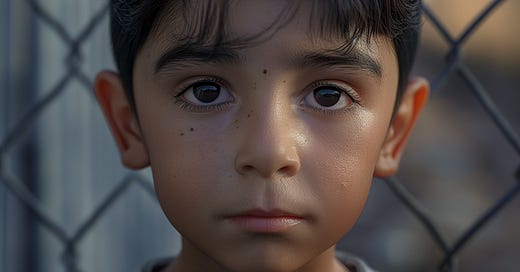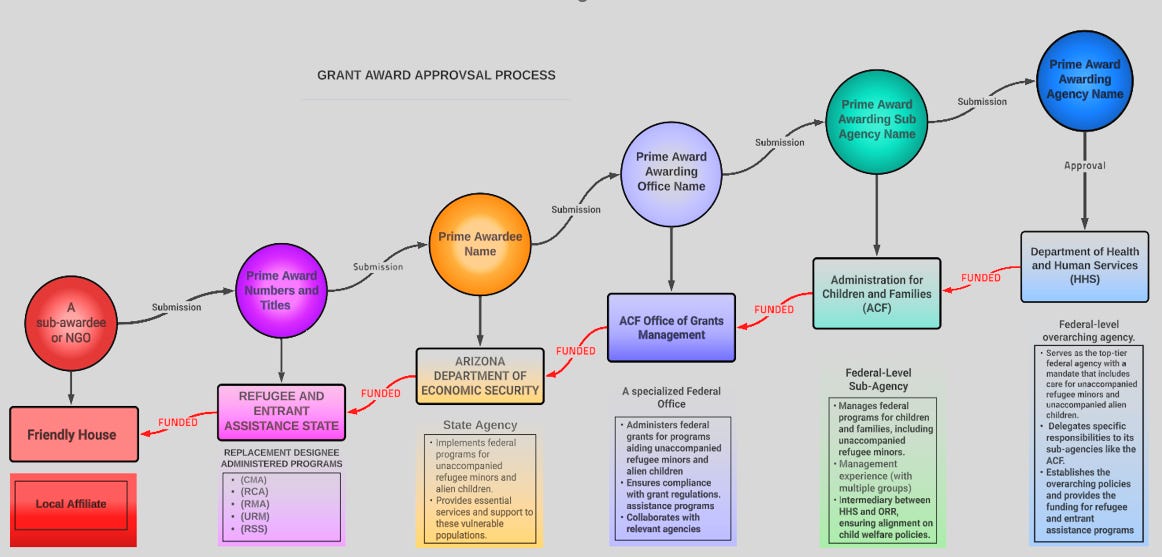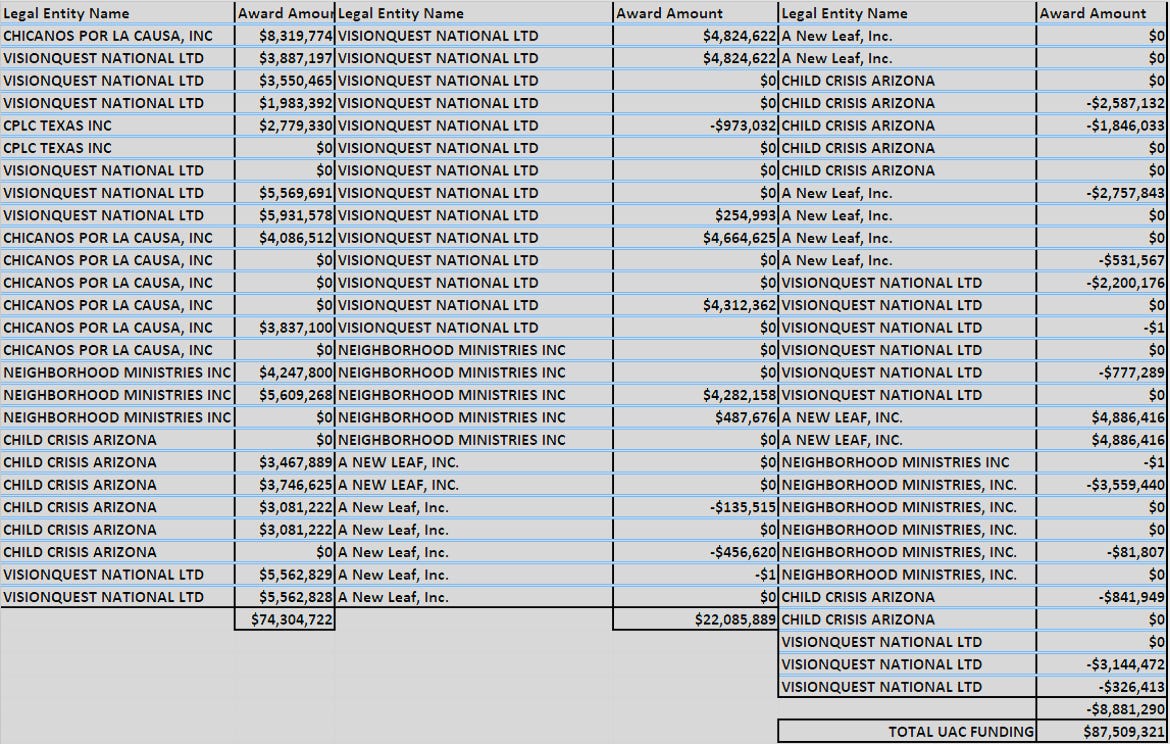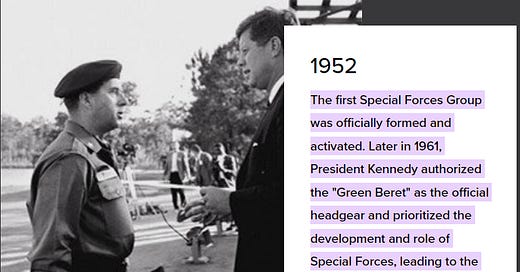
Fiscal Shadows and Human Rights Violations:
Government's Expenditure on Unaccompanied Minors
In recent years, the United States has grappled with formidable challenges in navigating the intricate and sensitive terrain of immigration, especially concerning the influx of unaccompanied minors. This demographic is chiefly composed of Unaccompanied Alien Children (UAC) and Unaccompanied Refugee Minors (URM), each necessitating specific care, legal proceedings, and resettlement support. Amidst escalating scrutiny, the allocation and oversight of the substantial funds dedicated to these vulnerable groups have sparked intense debate. A multi-layered system of grants and financial distributions has been established with the intent of safeguarding their well-being and facilitating their assimilation into American society. This investigation zeroes in on the fiscal foundations of programs tailored for unaccompanied minors, with a spotlight on Arizona as a pivotal case study. The disbursement of close to $6.4 billion in funds raises pressing concerns about the efficiency, transparency, and ultimately, the welfare of the children these programs aim to serve.
Concerns Over Grant Awards and Funding Hierarchy
Understanding the grant awards hierarchy and the funding architecture supporting immigration and resettlement initiatives is crucial. Prime awardees, generally federal entities, or departments, are at the apex, receiving Congressional appropriations to champion specific projects, including those for unaccompanied minors. Agencies such as the Department of Health and Human Services (HHS) and its Office of Refugee Resettlement (ORR) bear the mantle of comprehensive program administration and policy guidance.
As funding percolates down to state governments and subsequently to local agencies and nonprofits, the structure ostensibly aims at efficient and targeted fund allocation to the children in dire need. Nonetheless, the convoluted nature of this system, compounded by the staggering financial stakes, has ignited widespread alarm. Citizens are deeply concerned about the billions of dollars funneled into these programs, often perceiving that such vast resources might overshadow the support available to U.S. citizens facing hardships, including veterans, the homeless, foster children, the elderly, and those ensnared in poverty.
Moreover, the specter of insufficient oversight looms large, with disturbing reports of exploitation, including slavery and child trafficking, casting a long shadow over the noble intentions of these initiatives. Accusations of corruption further exacerbate fears, underscoring a distressing lack of accountability in the stewardship of these enormous financial outlays.
National Security Implications
Equally disconcerting is the potential jeopardy to national security posed by the manipulation of the U.S. immigration apparatus by cartels and international terrorist factions. The possibility that malevolent entities could exploit these humanitarian pathways into the United States is a source of grave concern, underscoring the urgent need for a thorough reevaluation of these programs' operational integrity and strategic objectives.
Call for Transparency and Reevaluation
This exploration demands a critical reexamination of the allocation and use of funds designated for unaccompanied minors, advocating for a framework that upholds efficiency, ensures transparency, and prioritizes the welfare of the children it seeks to protect. The American public's apprehensions about the equitable distribution of resources, the safeguarding of the nation's security, and the ethical administration of these programs merit serious consideration and immediate action.
Delving into the realm of U.S. immigration benefits reveals a complex landscape, especially when considering the plight of Unaccompanied Alien Children (UAC) and Unaccompanied Refugee Minors (URM), with Arizona serving as a significant case study. The conversation begins by defining an immigrant according to the Immigration and Nationality Act: an individual seeking to become a Lawful Permanent Resident of the United States. The U.S. Citizenship and Immigration Services (USCIS) delineates various immigration pathways, including the Adjustment of Status, allowing those already within the U.S. to pursue lawful permanent residency, colloquially known as obtaining a Green Card.
Focusing on Unaccompanied Alien Children, as outlined by 6 USC § 279(g)(2), these are minors without lawful U.S. immigration status, under 18, and lacking a parent or legal guardian in the U.S. to provide care. The situation for Unaccompanied Refugee Minors (URM), however, unfolds into a more intricate narrative. The term "unaccompanied refugee minor" lacks a singular, clear-cut legal definition within U.S. federal statutes, instead drawing its meaning from a broader legislative and policy framework that includes the Refugee Act of 1980 and the Homeland Security Act of 2002. These laws, alongside the guiding principles of the Office of Refugee Resettlement (ORR) within the Department of Health and Human Services (HHS), form the bedrock for addressing URM needs. However, whistleblowers and investigations, such as those from a Florida grand jury, have cast a shadow over the ORR's capacity to manage these responsibilities effectively, pointing to grave missteps and potential disasters in the care and oversight of these vulnerable groups.
The bifurcation of funding into two distinct streams—one for UACs and another for URMs—underscores the different legal standings and the support mechanisms designed for each group. While UACs fall under the Department of Homeland Security's purview before transitioning to ORR care, URMs are enveloped within the ORR's refugee assistance programs from the outset.
Challenges and Implications for Unaccompanied Refugee Minors
The lack of a precise, unified definition for URMs introduces a level of adaptability crucial for addressing their varied needs amid shifting policies and circumstances. Yet, this same flexibility breeds challenges in standardizing care and ensuring consistent support across varying administrations and policy changes, complicating the provision of equitable and consistent care.
The legal and care complexities surrounding URMs highlight the vital importance of continuous advocacy and policy development. It's imperative to engage in ongoing policy evaluation and enhancement to meet the evolving needs and challenges faced by these minors. This commitment is crucial for honoring the U.S.'s humanitarian obligations towards these vulnerable individuals, ensuring that protective measures, support mechanisms, and services are not just maintained but augmented to effectively address the emerging needs and challenges they face.
This exploration into the definitions, legal frameworks, and funding mechanisms for UACs and URMs, particularly through the lens of Arizona's experience, underscores a deeply concerning scenario. It reveals not just the procedural and financial dimensions of immigration and refugee assistance but also the profound implications of current practices on the lives of those it aims to protect. The serious tone of these revelations demands urgent attention and action to rectify oversight deficiencies and to bolster the systems designed to support some of the most vulnerable members of society.
The urgent call for clear, coherent policies in managing the financial mechanisms and classifications of unaccompanied minors shines a spotlight on the critical need for policies that are finely tuned to the unique requirements of these diverse groups. Ensuring that resources are allocated efficiently and equitably is paramount. This imperative for clarity and precision extends well beyond the formulation of policies to include a demand for enhanced transparency and oversight.
The challenges of transparency and oversight are markedly intensified by the lack of clearly defined laws and parameters. The ambiguity surrounding legal definitions, coupled with the deficiency in precise data for effective oversight, fosters conditions ripe for mismanagement and inefficiency. These conditions pose dire risks not only to the welfare of Unaccompanied Refugee Minors (URMs) but also to the integrity of the programs designed to support them. A dedicated effort to sharpen legal definitions, bolster data collection and analysis, and improve the transparency of operational and decision-making processes is essential for the proper care of URMs.
In 2023, Arizona became a host to 1,229 unaccompanied refugee minors, with the Office of Refugee Resettlement (ORR) reporting an additional 368 unaccompanied alien children, and the Department of State’s Bureau of Population, Refugees, and Migration (PRM) accounting for 2,613 refugees. It's important to note that URM funding is managed under the 93.566 grant, while UAC funding operates through the 93.676 grant. Delving into the financial support provided to these groups in 2023 unveils the dynamics of grant allocation and the programs it supports.
The substantial assistance programs available in the United States for refugees and unaccompanied minors have ignited significant concerns among American citizens. The perception that these comprehensive benefits outshine the support accessible to U.S. citizens, including veterans and others in need, underscores a deep-seated frustration. This sentiment calls for a reassessment of priorities to ensure that the needs of American citizens are not overshadowed.
Here's a closer examination of the programs that have sparked debate:
Cash and Medical Assistance (CMA) Program:
Benefits include financial and medical support for refugees, perceived by some Americans to exceed the assistance available to U.S. citizens, prompting critical questions regarding resource allocation.
Refugee Cash Assistance (RCA):
Provides temporary financial aid to refugee’s ineligible for other welfare programs, aimed at promoting self-sufficiency, raising debates on the accessibility of similar support for all Americans in financial distress.
Refugee Medical Assistance (RMA) and Medical Screening Programs:
Offers medical coverage and comprehensive health assessments for refugees, highlighting disparities in healthcare access compared to the challenges faced by many Americans, including veterans.
The Unaccompanied Refugee Minors (URM) Program:
Delivers specialized care and support, drawing attention to the perceived inequity in attention provided to children within domestic foster care systems.
Refugee Support Services (RSS) Program:
Aids refugees in overcoming employment barriers, with some Americans arguing that such services should be more widely available to help all residents achieve economic independence.
Refugee School Impact Program:
Enhances the educational integration of refugee children, sparking discussions on the need for increased public school funding across the U.S. to benefit all students.
Set-Aside Funding to Support Specific Populations:
Targets assistance to particular refugee groups, leading to questions about the prioritization of humanitarian efforts and the support provided to vulnerable U.S. populations, including veterans and the homeless.
This analysis underscores a pressing need for a reevaluation of how support and resources are distributed, aiming to balance the humanitarian obligations to refugees and unaccompanied minors with the imperative to address and prioritize the domestic needs of American citizens.
The dialogue surrounding the allocation of funds to these programs captures a broader discussion on national priorities, the distribution of resources, and the perceived disparity in the level of support provided to newcomers versus established U.S. citizens, particularly those who have dedicated their lives to service or who find themselves in dire need. This ongoing debate underscores an urgent call for a thorough reassessment and recalibration of our policies. The goal is to ensure that, even as we honor our humanitarian obligations, we do not lose sight of the imperative to address and prioritize the well-being and necessities of our own citizens first and foremost.
In 2023, the Arizona Department of Economic Security stood at the forefront of the grant funding process, with USAspending.gov reporting a staggering allocation of $6,388,618,472.92 to this program. A breakdown of the sub-awardees for the 93.566 grant includes a diverse array of organizations:
1. Arena Agency on Aging Region One Inc.
2. Arizona Migrant and Refugee Services Inc.
3. Banner University Medical Group
4. Catholic Charities Community Services Inc.
5. Catholic Community Services of Southern Arizona Inc.
6. Chicano Por La Causa Inc.
7. Friendly House
8. ICNA Relief USA Programs
9. International Rescue Committee Inc.
10. Jewish Family and Child Services Inc.
11. Lutheran Social Services of Southwest
12. Maricopa County Special Health Care District
13. County of Maricopa
14. Pima County Community College District
15. Somali American United Council of Arizona
16. Tucson Refugee Ministry
17. Unlimited Potential Inc.
18. Welcome to America Project
The sheer magnitude of this funding — over $6.3 billion — when juxtaposed against the numbers of those served, including 1,229 URMs, 368 UACs, and 2,613 refugees, invites a deeper examination. This scrutiny becomes even more pressing when we consider the separate funding streams for the UAC program in Arizona, which supported entities such as:
1. Child Crisis Arizona
2. Neighborhood Ministries Inc
3. A New Leaf, Inc.
4. Chicanos Por La Causa, Inc
5. VisionQuest National Ltd
6. CPLC Texas Inc
7. VisionQuest National Ltd
8. Chicanos Por La Causa, Inc
9. Neighborhood Ministries Inc
10. Child Crisis Arizona
11. VisionQuest National Ltd
Upon calculating the total investment in the Unaccompanied Alien Child (UAC) program in Arizona, we arrive at an astonishing $87,509,321. This figure, however, invites a deeper examination when scrutinized closely. Delving into the cost per individual, given the intricate task of distinguishing between unaccompanied refugee minors and the broader refugee populace, reveals a striking disparity in the allocation of funds relative to the number of individuals served. It is important to assess the expenditure associated with each unaccompanied alien child meticulously. Given the close integration of the Unaccompanied Refugee Minor (URM) program with broader refugee and entrant assistance, a comprehensive evaluation that encompasses both URMs and refugees is essential.
The arithmetic reveals that dividing $87,509,321 by 368 yields approximately $237,797.07 for each unaccompanied alien child, a sum that could be considered exceptionally generous by any standard. Furthermore, combining the figures — 1,229 URMs and 2,613 refugees — totals 3,842 individuals. Subtracting the Sub-Award total of $42,082,328.30 from the Prime Awardee's staggering $6,388,618,472.92 leaves us with $6,346,536,144.62. Dividing this remaining amount by 3,842 individuals calculates to an overwhelming $1,651,883.43 per person.
This calculation undeniably uncovers alarming issues, intensifying the urgency to question the effectiveness and transparency of the funding distribution. The discrepancy in numbers raises the specter of a potential under-reporting of unaccompanied alien children or unaccompanied refugee minors, possibly hinting at deliberate oversight. Coupled with the distressing reports of over a hundred thousand children unaccounted for, this financial analysis not only demands attention but also action. The grave implications of such a vast sum of money, juxtaposed with the uncertain fate of these children, warrant a collective awareness and concern. The critical question remains: Are these alarming observations and the profound implications they suggest being recognized widely, or are they overlooked in the broader discourse on immigration and refugee support?























The fact that this article had to be written underscores the likelihood that the intents of the various programs and foundations are not for the benefit of the unaccompanied children; underscores the fact that there’s no oversight or accountability; underscores the fact that these are illegally here. This pretty much ensures, knowing what we know now, that these children are being trafficked; they are part of a cartel’s profit stream and that a whole lot of money laundering is going on. As you noted, “…casting a long shadow over the noble intentions of these initiatives…”. I’d venture to state the intents are not noble, no matter what the groups state. Think Haiti. Close the border and destroy any cartel support in the US.
money laundering. wealth redistribution. human-trafficking. slavery.
Matthew 25:45 (CSB)
“Then he will answer them, ‘Truly I tell you, whatever you did not do for one of the least of these, you did not do for me.’